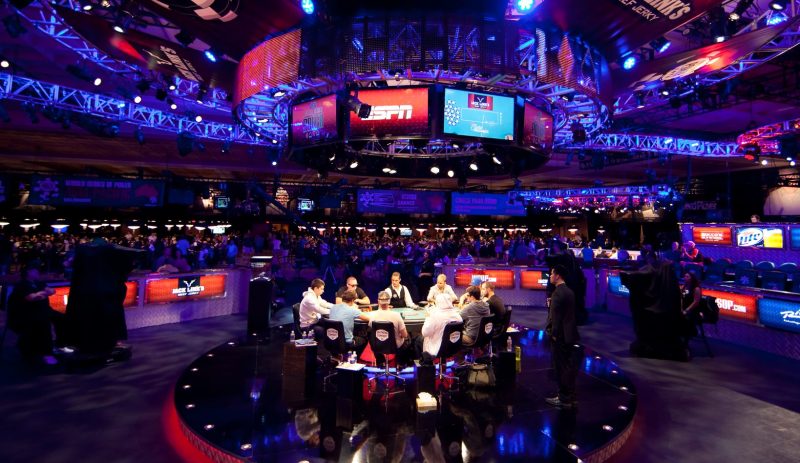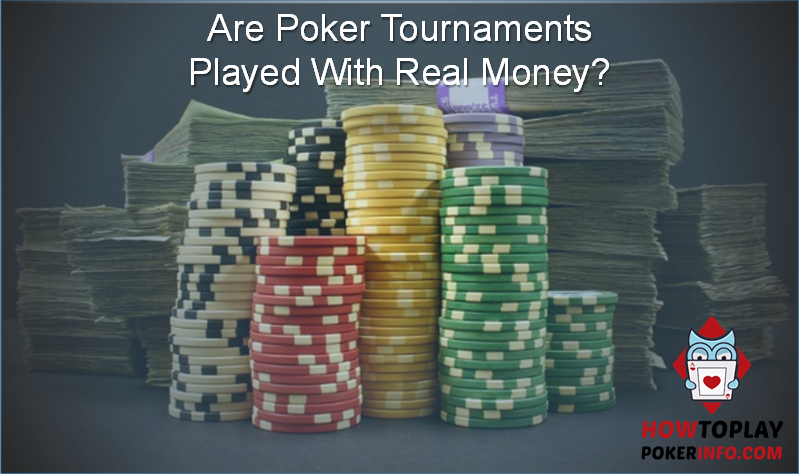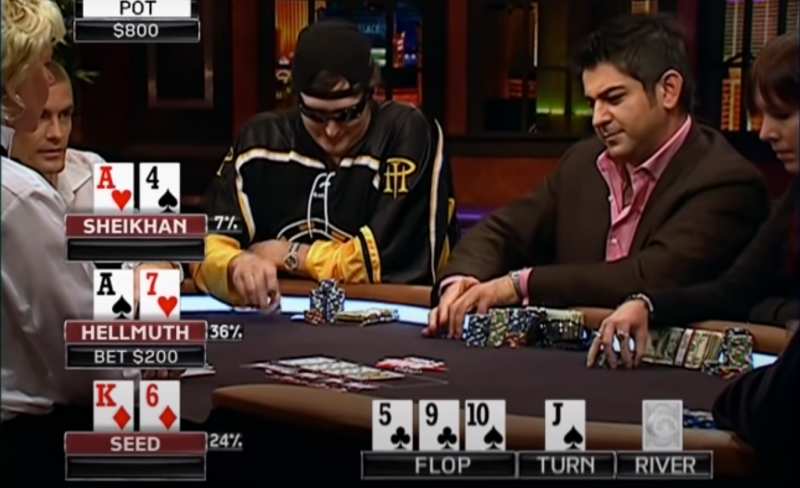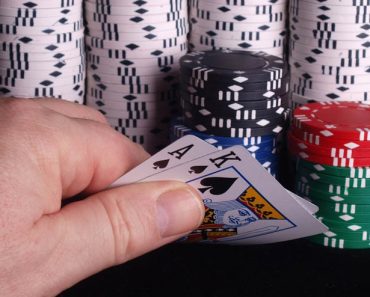Poker tournaments can be a bit of a mind-bender for newcomers. Even though they’re one of the most popular ways to play, a lot of beginners aren’t exactly sure how they work. One of the most common questions?
“Are poker tournaments played with real money?”
It’s easy to see where the confusion comes from. You’ll see players with stacks worth millions of chips in front of them—but does that mean they’re sitting on millions of dollars? Not quite.
Here’s the no-nonsense answer:
Poker tournaments are not played with real money chips.
When you buy into a tournament, you’re exchanging cash for play chips. Those chips are just a scoring tool—they don’t have any actual value. Lose all your chips? You’re out. Finish near the top? That’s when the real money comes in.
The prize pool is made up of everyone’s buy-ins and is paid out to the top finishers. So while you’re not betting with real money during the tournament, you’re absolutely playing for real money.
💰 How Real Money Works in a Poker Tournament
The easiest way to understand how poker tournament payouts work is with a simple example.
Let’s say 100 players each pay $50 to enter a tournament. That creates a total prize pool of:
100 players x $50 = $5,000
That $5,000 is real money—and it’s what everyone is competing to win. But how is that money handed out? That depends on how the tournament is structured. Usually, only the top 10–20% of players get paid, with the biggest prizes going to the final few players.
Here’s what a possible payout structure might look like:
| Finish Position | Payout % | Payout ($) |
|---|---|---|
| 1st (Winner) | 10% | $500 |
| 2nd | 6% | $300 |
| 3rd | 4% | $200 |
| 4th | 2.5% | $125 |
| 5th–10th | Varies | Smaller prizes |
The exact amounts can vary from one tournament to another, but the idea is the same: the deeper you go, the more you win.
🎲 What About All Those Chips?
Here’s where many beginners get confused. During a tournament, you’ll see players with stacks of chips that look like they’re worth thousands or even millions of dollars. But those chips aren’t real money—they’re just tools for playing the game.
-
When you enter a tournament, you pay real money.
-
In return, you get a starting stack of play chips—let’s say 10,000 chips.
-
These chips are used to bet, raise, and call during the tournament—but they have no cash value.
-
You can’t cash them out, trade them in, or take them home. They're just for keeping score.
Even if you build your 10,000-chip stack into 200,000 chips, the only thing that matters is your final position. The number of chips doesn’t translate into money unless you finish in one of the prize positions.
🪑 Can You Walk Away With Your Chips?
Nope. If you leave early, your chips stay on the table and your stack will get “blinded out” (slowly eaten away by the blinds until you’re out). You must finish in the money to win anything—chips are temporary, winnings are real.
How Much Money Can I Win in a Tournament?
The amount of real money you can win in a tournament is directly connected to the buy-in, i.e. the amount you pay for your seat, and the number of players in an event. The reason why WSOP Main Event winners get multi-million scores is the high buy-in of $10,000 and the fact these tournaments are usually played by thousands of players.
Once again, don’t get confused by the number of chips you receive at the start of a tournament. In theory, even a $10 tournament could start players with 1,000,000 in chips and make it look like the players have huge stacks.
However, when all is said and done and you have all 200,000,000 chips in front of you (from all 200 participants), you can still expect to win something around $200 to $300 in real money.
This is what makes tournaments so appealing in the first place as you often get to play for hours (due to a lot of chips) without risking too much or risking a fixed amount. If you’re a good player or get very lucky (or the combination of both) you can win 10, 20, or even 100 times your buy-in, which is really hard or even impossible to do in cash games.
The Main Differences between Cash Games and Tournaments
Although the same rules of poker apply whether you play in a cash game or a tournament, there are some very important differences between these two formats.
The first and the most important one has already been explained: tournament chips can never be cashed out. So you are going to have to play with your chip stack until you have either lost it all or won the tournament.
Cash games, as the name would suggest, are played with actual money. Most of the time, you are provided with chips which can be directly exchanged for cash however in some special circumstances you are allowed to play with actual wads of cash as was commonly practised on Poker After Dark.
Stemming from the previous point is another significant distinction that will define your strategy in tournaments. In cash games, you want to fight for every pot because every pot is worth exactly the amount of money that it contains.
In poker tournaments, individual pots aren’t as important and the “value” of the chips can change significantly over the course of the competition.
Tournaments are much more about surviving and picking your spots. Your first goal is to “make the money”, i.e. outlast other players and reach the first paying position. Sometimes you’ll be better off folding a really strong hand and waiting it out.
Winning pots in a tournament is important, of course, but not losing them is much more important.
If you lose all of your chips in a tournament, you’re out and you can no longer compete for the prizes. Unlike cash games, where you can simply top up and keep playing, once you bust from the tournament, you’re done.
When Do You Get Paid In A Tournament?
Another common question that comes together with the original one, i.e. “are poker tournaments played with real money” is the one about the bubble and when you actually get paid in a tournament. You’ve probably heard the term many times but it doesn’t really sound like it has much to do with poker, right?
In the poker slang, though, the term “bubble” is used for the player who busts out just before the money.
For example, there are 20 places paid in an event and you finish in the 21st spot. Congratulations, you’ve just earned the unflattering title of the bubble boy or girl.
This is one of the worst feelings for any tournament player out there and you really want to avoid going out near the bubble if at all possible. That’s why you’ll frequently see players in major events nursing a very short stack and refusing to go all in.
They’re waiting for the bubble to burst, i.e. for another player or two to get eliminated to ensure they get paid.
In these scenarios, having even a few blinds can be of great importance.

Let's imagine you are on the bubble in the WSOP main event which typically has a $15,000 minimum payout for those who make the money (with a buy-in of $10,000).
If you have only a single chip, that chip will be worth nothing if you get knocked out on the bubble, but it will be worth at least $15,000 if you make it to the money.
In the first instance, you go home with nothing. In the second instance, you’ll usually receive the money you paid for the tournament back and a very tidy profit.
For more information on playing around the bubble including how to use it to your advantage, read this article over at Splitsuit.com.
Do Tournaments Always Pay Out Real Money?
In general, tournaments are played for real money, especially in live casinos and poker rooms. However, not all tournaments payout real money – sometimes other prizes are there to be won.
Some events will reward top players with entries to a different (more expensive) tournament instead of paying them money. These are what’s known as satellites and are frequently used by players with smaller bankrolls to get into bigger events without risking as much money.
On the other hand, in the online arena (where dealers don't have to be paid), you’ll sometimes find tournaments that are completely free to enter but pay out real money or tournament entries. These are known as freerolls and represent a great way to learn the game and even start your poker bankroll with zero risk involved.
To see the best online poker sites to play freerolls online, check out my post here: https://howtoplaypokerinfo.com/best-online-poker-sites/
Related Questions
Why is there money missing from the tournament prize pool?
In most cases, the organizer will charge the tournament fee (or the rake) from the players. If a tournament has a buy-in of $55, for example, $5 will be kept by the house while the remaining $50 will go into the prize pool.
Is there a way I can cash out my tournament chips?
No there isn’t. Tournament chips have no monetary value of their own and you can’t exchange them for real money under any circumstances.
Who gets money in a poker tournament?
Players finishing in top spots of the tournament receive cash prizes. The exact number of players getting paid and the payout structure differs from one tournament to another.





